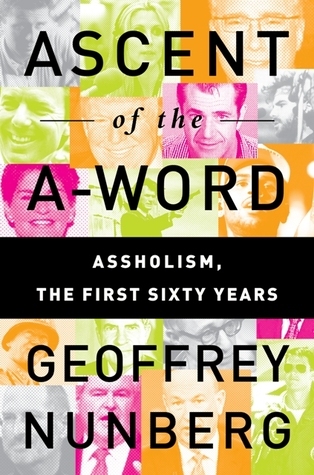What do you think?
Rate this book


272 pages, Hardcover
First published August 1, 2012
A friend calls to tell you that she has just discovered that her husband has been having an affair with the nanny. You’re not about to respond by saying, “Sacre bleu! How caddish!” or by improvising some novel malediction that invites admiration for your cleverness—this isn’t about you, after all. Common decency requires that you simply say, “What an asshole!” thereby not just condemning the offense and manifesting your contempt for the offender, but also inviting your listener to replace her feelings of hurt and diminution with restorative anger.
The asshole’s obtuseness makes him incapable of separating his sense of who he is from what he does or what he has or what he knows, which is what it means to be inauthentic. When you hear somebody say indignantly, ‘Don’t you know who I am?’ it’s a fair bet that he doesn’t, either.
There’s a certain delusion in the assumption that there’s some virtue in coming clean about one’s assholism. The fact is that there’s no such thing as an “honest asshole”; it’s in the nature of being an asshole that you’re obtuse about your entitlements and about the way others see you. If you’re consciously and deliberately offending or manipulating someone, you necessarily belong to another breed. So when you hear somebody proudly declaring himself an asshole, it’s a fair conclusion that he’s not an asshole, he’s just a dick.
...when somebody is being an asshole about a really important matter, then out of respect for the topic alone you ought to refrain from being an asshole back at him and answer instead with the seriousness the question requires. The important business of public life creates an obligation of self-restraint.
Given the title and celebrity pictures on the cover, I was expecting a humorous look at some of the more egregious examples of said behaviour.
Instead, this book provides a linguistical analysis of the rise of the titular term in common usage, teasing out the differences in nuance between this versus other oft used terms of endearment, and delving into the increasing prevalence of said affliction in public, and particularly political, discourse.
It was actually a pretty interesting read, though not a quick one. It started dragging a bit towards the end, speaking of which, this one's seemed a bit abrupt. Nonetheless, I thought the author did a reasonably good job of getting me to stop and consider seriously for a moment a word that all-to-often passes my lips without a second thought.